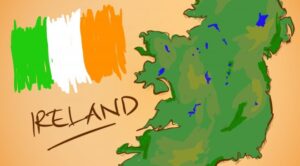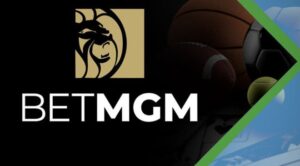Key Moments:
- Major gambling operators have lost $208.6 billion in advertising reach due to enforcement changes on Google, Meta, and TikTok.
- Spain has experienced a 55% decrease in new gambling accounts after advertising restrictions were put into place.
- DraftKings continues to spend $197.5 million per quarter on advertising despite new platform limitations.
Industry Faces Disruption as Platforms Enforce New Advertising Rules
Gambling operators across the globe are encountering significant obstacles as key digital platforms tighten rules around advertising. Throughout 2025, enhanced verification requirements and content limitations from Google, Meta, and TikTok have changed how operators are able to reach consumers. April saw Google’s policy update, while Meta’s requirements began in July, and TikTok enacted bans in certain regions. Traditional strategies for acquiring new customers have been upended according to industry reports.
These policy shifts impact the approval process for certification, ad creative, and targeting abilities in numerous countries. Operators are seeing greater compliance demands as platforms adhere to shifting national regulations.
Major Platform Policy Shifts
| Platform | Key Action | Market Affected / Date |
|---|---|---|
| Paused new gambling certifications | Australia / August | |
| Meta | Introduced hand-review and enhanced verification for all gambling ads | Global / July 9 |
| TikTok | Halted all Real Money Gambling ads | Philippines / August 22 |
| Spain | Saw 55% decline in new accounts after ad restrictions | 2020-2023 |
| DraftKings | Maintains $197.5 million quarterly ad spend | Despite new limits |
Why Digital Platforms Are Tightening Gambling Ad Rules
Technology companies have responded to increasing regulatory and public pressure to control gambling advertisements, especially those seen by younger audiences. Both user protection and regulatory compliance are cited as the principal reasons for the adoption of stricter advertising rules. The progression began with approval delays early in 2025 and escalated to outright account restrictions by mid-year, dramatically impacting customer acquisition channels once dominated by digital advertising.
Google’s Enhanced Certification and Regional Enforcement
On April 14, 2025, Google rolled out updated advertising policies for gambling, requiring operators to complete new market-specific certifications and present advanced documentation. These requirements now mean operators must be certified in every new country they target, which has stretched campaign rollout times. Enforcement around social casino advertising has tightened, with immediate account suspensions for policy violations and the removal of these games from eligible advertising options.
Google’s approach is not uniform across all markets. For example, ads were approved in Cameroon and Namibia in August, while new certifications paused in Australia. The company permitted gambling ads in Ukraine from July 14, but imposed stricter regulations in Nigeria starting in March, revealing region-specific strategies that are directly influencing market dynamics.
Meta’s “Permissions and Verifications” Framework
Starting July 9, 2025, Meta required gambling advertisers on Facebook and Instagram to undergo an in-depth verification process, including classifying their business and submitting comprehensive licensing proof. This process, now formalized in Meta Updates Rules on Gambling Ads Across Facebook and Instagram, typically lasts between 45 and 90 days and applies to individual advertising accounts.
Throughout 2025, regulatory pressure has led to prompt enforcement measures, such as Brazil’s directive for Meta to remove illegal gambling ads within 48 hours and the removal of pages affiliated with unlawful gambling activity. The new measures especially impact influencer-driven marketing, as content creators must now register as affiliates and seek approval before sharing promotional content.
TikTok’s Global Gambling Content Restrictions
TikTok’s gambling ad ban now stretches across several markets, prohibiting advertising for online casinos, sports betting, fantasy, and lottery services. In the Philippines, gambling ads were suspended beginning August 22, 2025, in support of government safety initiatives. Since TikTok was previously effective in reaching users ages 18-25, these bans are particularly consequential for operators pursuing younger demographics.
Europe’s Regulatory Initiatives and Market Impact
Spain’s example shows tangible effects from advertising limitations, including a drop in new gambling accounts from 3.01 million down to 1.35 million between 2020 and 2023. Advertising spend declined from €193.7 million in 2020 to €116.5 million in 2022, recovering slightly in 2023. Bonus spending also saw reductions during this period. While Spain’s Supreme Court overturned some parts of Royal Decree 958/2020 in April 2024, restrictions such as sports sponsorship bans and broadcast limits remain.
The European Union’s Digital Services Act is enforcing transparency for digital advertising, with member states adding their own controls. France, for example, is set to limit whistle-to-whistle ads and promotional sponsorships. Compliance has become increasingly complex as operators are forced to maneuver across these overlapping regulatory landscapes.
Asia-Pacific: Voluntary Platform Restrictions and Australia’s Approach
Asian governments, including the Philippines, have achieved gambling ad restrictions through voluntary agreements with digital platforms instead of formal laws. For instance, TikTok’s removal of Real Money Gambling ads in the Philippines demonstrates a coordinated approach aimed at enhancing digital safety. Other countries may follow this lead, favoring direct platform engagement over legislative controls.
In Australia, new certifications for gambling ads were paused by Google in August, creating obstacles for new market entrants. Current certified advertisers, however, remain unaffected for now. Although public support for advertising bans is strong, major reforms have been delayed beyond 2024 due to industry consultation and concerns from sporting organizations, with new reforms considered for implementation by 2026.
Brazil and Other Global Regulatory Movements
Brazil has developed new rules restricting online sports betting promotion and influencer involvement. These measures follow the country’s leading investment in television advertising for online betting and require operators to shift their strategies to adapt to regulatory changes.
Operators Adjust Strategies Amid Growing Restrictions
As digital advertising platforms enforce tighter restrictions, gambling companies are shifting investments to alternative channels. There is increased reliance on technologies for customer retention, compliance systems, and programmatic ad networks that exist outside major platforms’ control. Email, affiliate relationships, and direct outreach now receive a larger share of marketing expenditure.
Brazil’s operators, faced with digital limitations, have become significant television advertisers. Companies with diversified approaches have proven more resilient. One example is DraftKings, which reported $1.5 billion in Q2 revenue and 147.5% net income growth, maintaining operations despite significant ad restrictions.
Investment in compliance technology has increased, allowing operators to adapt quickly and fulfill simultaneous regulatory requirements. Many are also prioritizing markets with stable regulations rather than those with uncertain policy environments.
Industry Outlook: Toward a Restricted Digital Future
The sweeping policy changes introduced throughout 2025 suggest further convergence in platform and government approaches to gambling advertising. Operators capable of navigating complex, changing compliance obligations while diversifying marketing strategies are likely to outperform those reliant on traditional digital channels. The evolving regulatory landscape will prioritize operational excellence, robust compliance, and adaptability in both regional and global gambling markets.
- Author


